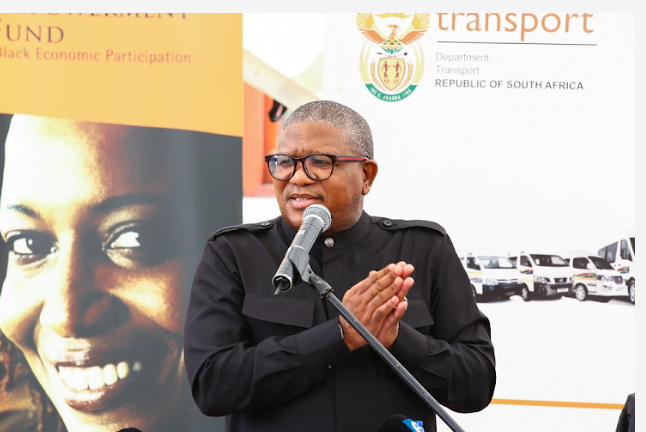In what the government has described as the first step towards formalising the multibillion-rand taxi industry, sector bosses on Tuesday finally accepted the R1.135bn Covid-19 relief fund.
This followed months of intense wrangling, name-calling and protests over the amount and stringent conditions attached to it since it was unveiled in 2021.
BusinessLIVE reported that transport minister Fikile Mbalula said the money would be shared by about 137,000 minibus, 25,000 meter taxis and 63,000 e-hailing operators, with each operator taking home about R5,000.
Mbalula said the relief fund “is a stepping stone” towards formalising and transforming the taxi industry.
“It’s not an answer to everything. It’s an intervention. It will not address all the problems.”
In a briefing on Tuesday, Mbalula admitted that the taxi industry, which transports about 16.5-million passengers a day, contributes R50bn to GDP annually and spends more than R20bn on fuel, “got a raw deal” — but stressed they had themselves to blame for the lack of unity.
Today we officially launch the disbursement of the taxi relief fund, which is meant to ease the impact of Covid-19 on the taxi industry,” said Mbalula, reiterating that the relief was not a magic wand to address the sector’s challenges.
“It’s not meant to do that. It’s ex gratia, meaning it’s something you do, but you are not bound.”
The industry was hit hard by the coronavirus pandemic as various stages of lockdown saw passenger occupancy numbers reduced in line with social distancing rules, while interprovincial and cross-border operations were prohibited.
The industry had previously argued that the R1.135bn fund was a drop in the ocean compared with the losses incurred during the lockdown.
Today we officially launch the disbursement of the taxi relief fund, which is meant to ease the impact of Covid-19 on the taxi industry,” said Mbalula, reiterating that the relief was not a magic wand to address the sector’s challenges.
“It’s not meant to do that. It’s ex gratia, meaning it’s something you do, but you are not bound.”
The industry was hit hard by the coronavirus pandemic as various stages of lockdown saw passenger occupancy numbers reduced in line with social distancing rules, while interprovincial and cross-border operations were prohibited.
The industry had previously argued that the R1.135bn fund was a drop in the ocean compared with the losses incurred during the lockdown.
Sars was dropped as the implementing agency to disburse the relief funds and replaced by the National Empowerment Fund (NEF), run by CEO Philisiwe Mthethwa, the wife of arts and culture minister Nathi Mthethwa.
Theo Malele, spokesperson for the National Taxi Alliance (NTA), the country’s second-largest taxi organisation, told Business Day the condition they put to Mbalula was “not to let Sars be used in this process. Our position was that Sars can follow up on tax matters on a one-on-one basis with individual taxpayers.” Malele said the NTA would be “looking at this [process] with a hawk’s eye to see funds are disbursed and paid timeously”.
Phillip Taaibosch, president of the SA National Taxi Council (Santaco), the country’s biggest taxi organisation, told Business Day: “I agree with the minister that the R5,000 is not a payment to taxi operators. It’s not even compensation. It’s just relief. It’s just to say, ‘sorry to you for your losses’, but it’s not to compensate for the losses.”
Last year, Mbalula had announced a deadline of April (2021) to introduce a subsidy for the taxi industry, but that never materialised. When asked about that, he said the government was “dealing with the matter”, but did not reveal the new deadline.
Mthethwa said the NEF had established a call centre and upgraded its IT systems to ensure “seamless implementation” of the project.
“We want to wrap up this process by March. Industry people must come and claim what is due to them,” said Mbalula.
Business/ Times LIVE
